
We could end this article in one sentence by saying that both titles, in essence, mean the same thing.
In the last couple of centuries, it was created a convention that the title “Amir” (or “Emir”) would be the equivalent of the European “Prince”. According to several encyclopedias, “Amir”, means “lord” or “commander-in-chief”, being derived from the Arabic root ‘a-m-r’ or “command“. Originally, simply meaning “commander-in-chief” or “leader”, usually in reference to a group of people, it came to be used as a title for governors or rulers, usually in smaller states. Therefore, the title had a military – not necessarily royal/noble – connotation.
“The title Emir or Amir was equivalent of that of Commander.” The Black Book of the Admiralty, 1873, V.2, p.xiii (Cambridge University Press, 2012 edition, edited by Travers Twiss)
“In the past, amir was usually a military title, now used to mean prince or as a title for various rulers or chiefs.” The New Encyclopedia of Islam, By Cyril Glassé, Huston Smith, Rowman Altamira, 2003, p.48
In comparison to the western titles, by its origin and meaning, the title “Amir” would be equivalent to the title “Duke”, not “Prince”, since both “Amir” and “Duke” have a military root and meaning.
About the title “Duke”:
“The title comes from French duc, itself from the republican Rome to refer to a military commander without an official rank , ‘leader’, a term used in Latin dux(particularly one of Germanic or Celtic origin), and later coming to mean the leading military commander of a province.” https://en.m.wikipedia.org/wiki/Duke
Whereas the title “Sheikh” was used mostly in three different connotations:
- Religious – although more recent, doesn’t concern this article,
- Royal – “sui iuris” hereditary sovereign or semi-sovereign ruler,
- Noble – noble title given by a sovereign or semi-sovereign ruler hereditary (“ad eternum”) or not (“ad personam”)
“Sheikh (pronounced /ʃeɪk/ SHAYK or /ʃiːk/ SHEEK; Arabic: شيخ šayḫ [ʃæjx], mostly pronounced [ʃeːx/ʃejx], plural شيوخ šuyūḫ [ʃuju:x])—also transliterated Sheik, Shaik, Shayk, Shaykh, Cheikh, Shekh, and Shaikh—is an honorific title in the Arabic language. It commonly designates the ruler of a tribe, who inherited the title from his father. “Sheikh” is given to a royal male at birth, whereas the related title “Sheikha” is given to a royal female at birth.”
https://en.wikipedia.org/wiki/Sheikh
“…The word ‘sheikh’ can be used as a label for a head of a tribe in the Arab culture; for a member of a ruling family (as in Kuwait and the other Gulf States, for example), or for a religious person who perform religious duties.” Religion and Terrorism: An Interfaith Perspective, by Aref M. Al-Khattar, Greenwood Publishing Group, 2003, p.15
Important to note that the meaning of the word “tribe” in the Anthropological sense means a group of people, politically organized, that has the same language, beliefs, customs, and interests. However, some historians use the term “tribe” in a pejorative fashion, to mean indigenous, primitive, and insignificant.
“In such contexts, members of a tribe are typically said to share a self-name and a contiguous territory; to work together in such joint endeavours as trade, agriculture, house construction, warfare, and ceremonial activities; and to be composed of a number of smaller local communities such as bands or villages. In addition, they may be aggregated into higher-order clusters, such as nations.
As an anthropological term, the word tribe fell out of favour in the latter part of the 20th century. Some anthropologists rejected the term itself, on the grounds that it could not be precisely defined. Others objected to the negative connotations that the word acquired in the colonial context. Scholars of Africa, in particular, felt that it was pejorative as well as inaccurate.” https://www.britannica.com/topic/tribe-anthropology
Originally, the title “Sheikh” was more related to hereditary royal/noble pedigree than the title “Amir”.
“Besides the sovereigns referred to above, there are several oriental potentates who should be mentioned, the rulers of the Sultanates and Sheikdoms of East Africa and the Persian Gulf (…) The style of these Sheikhs is His Highness.” “Titles: How the king became His Majesty”, L.G. Pine, New York, 1992 (Barnes & Noble) p. 137-138
“In the modern United Arab Emirates, however, none of the rulers of the constituent states are called emirs (princes); all are Sheikhs.”
In conclusion, a “sovereign” or “semi-sovereign” Sheikh is a Prince:
“The original, but now less common use of the word, originated in the application of the Latin word princeps, from late Romanlaw, and the classical system of government that eventually gave way to the European feudal society. In this sense, a prince is a ruler of a territory which is sovereign, or quasi-sovereign, i.e., exercising substantial (though not all) prerogatives associated with monarchs of independent nations, as was common, for instance, within the historical boundaries of the Holy Roman Empire.”
(…)
“As a title, by the end of the medieval era, prince was borne by rulers of territories that were either substantially smaller than or exercised fewer of the rights of sovereignty than did emperors and kings [exactly as the Sheikhdoms]. A lord of even a quite small territory might come to be referred to as a prince before the 13th century, either from translations of a native title into the Latin princeps (as for the hereditary ruler of Wales), or when the lord’s territory was allodial.”
(…)
“Lords who exercised lawful authority over territories and people within a feudal hierarchy were also sometimes regarded as princes in the general sense, especially if they held the rank of count or higher. This is attested in some surviving styles for e.g., British earls, marquesses, and dukes are still addressed by the Crown on ceremonial occasions as high and noble princes (cf. Royal and noble styles) “
(…)
” Generically, prince refers to a member of a family that ruled by hereditary right, the title referring either to sovereigns or to cadets of a sovereign’s family. The term may be broadly used of persons in various cultures, continents or eras. In Europe, it is the title legally borne by dynasticcadets in monarchies, and borne by courtesy by members of formerly reigning dynasties“
https://en.wikipedia.org/wiki/Prince#Prince_as_generic_for_ruler

Photo: The grave of His Highness Sheikh Selim El Chemor (passed away in 1909 CE, the great grandfather of HRH Prince Sheikh Selim El Chemor, honorary head of the Royal House of Ghassan ), note that the royal title of Sheikh (in Arabic, upper right side) is on his tombstone, a capital proof that the family has been publicly using the ‘sui iuris’ titles for centuries until the present date. (Grave at the cemetery at the Mar Mama Ancient Church in Kferhata, Lebanon)
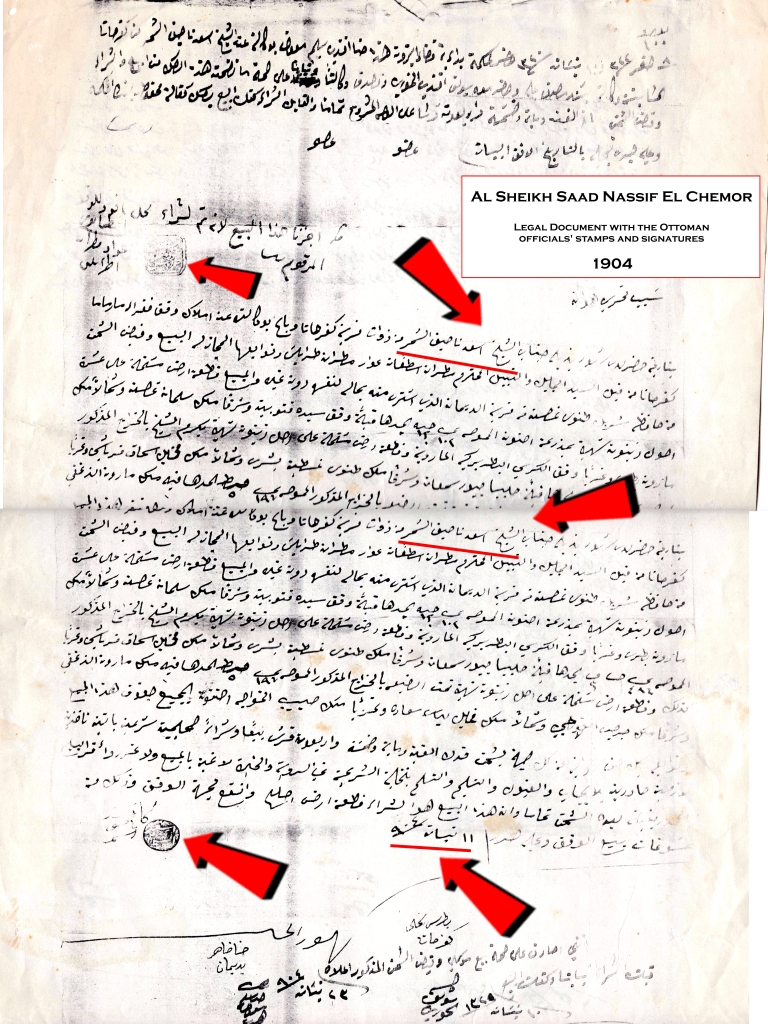
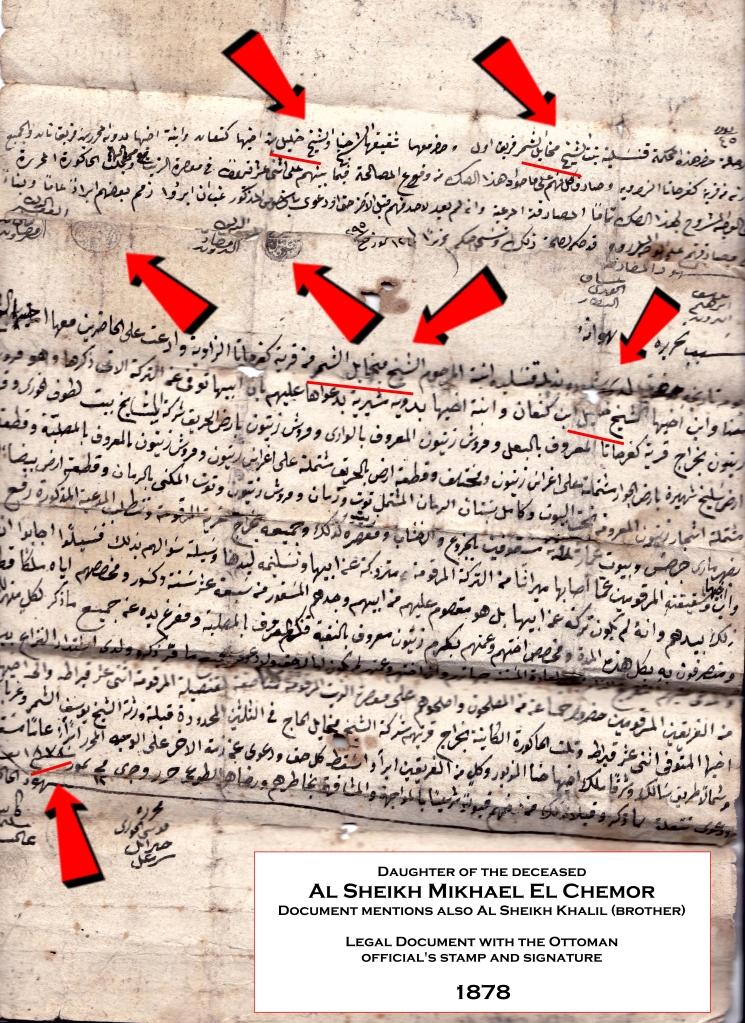
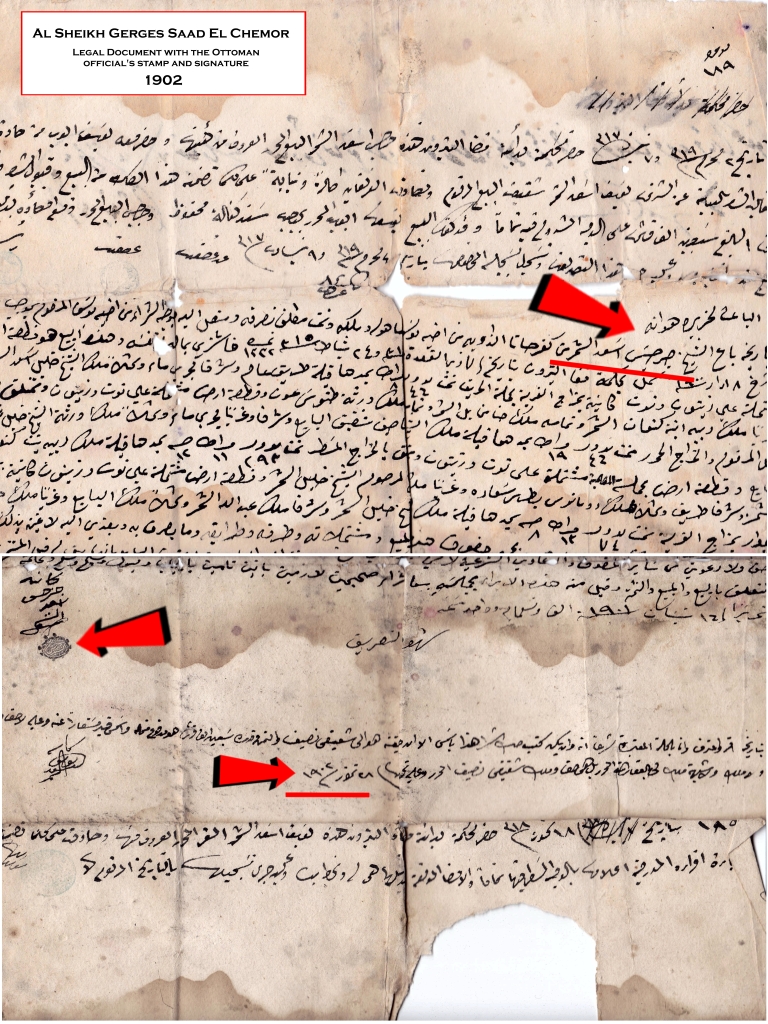
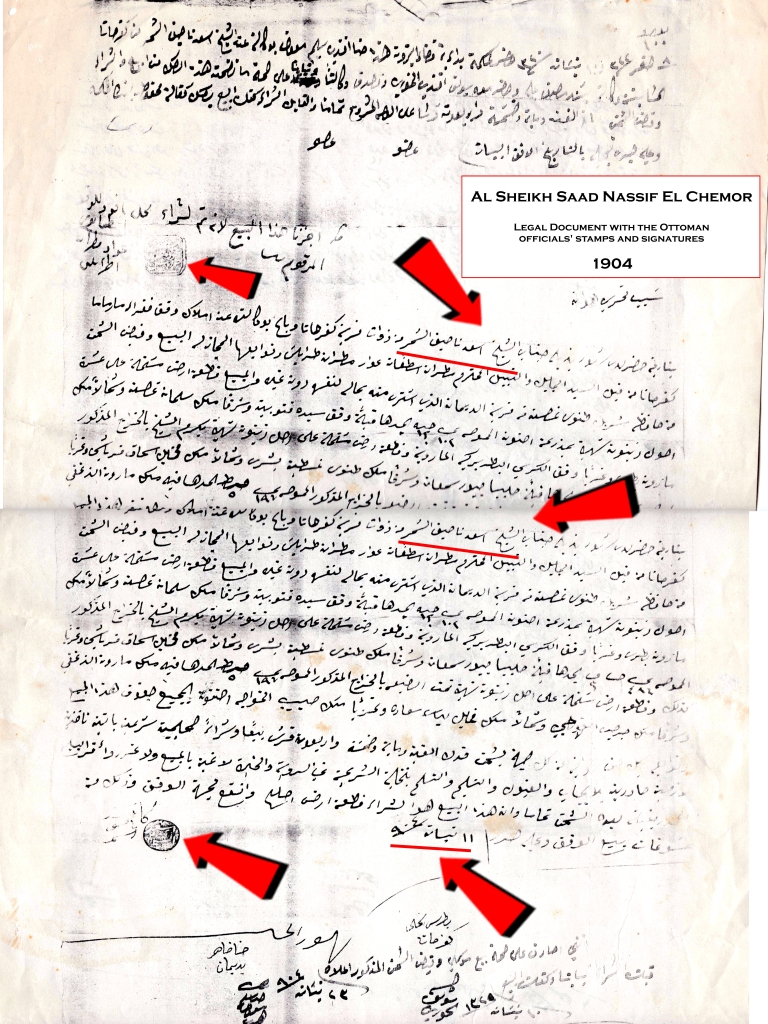
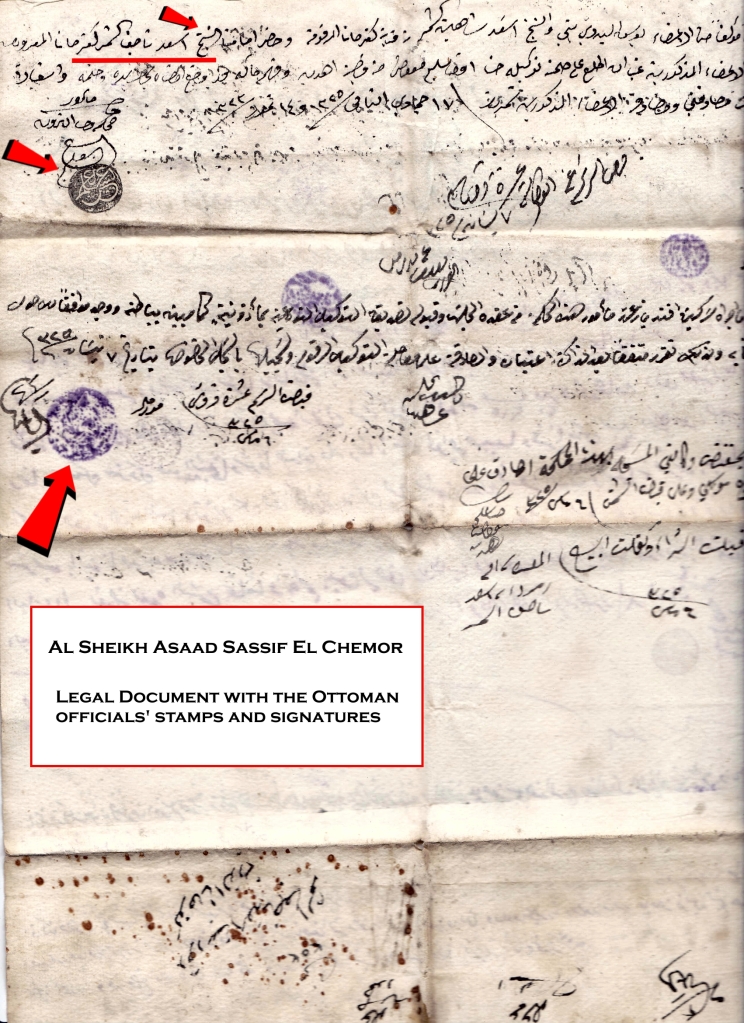
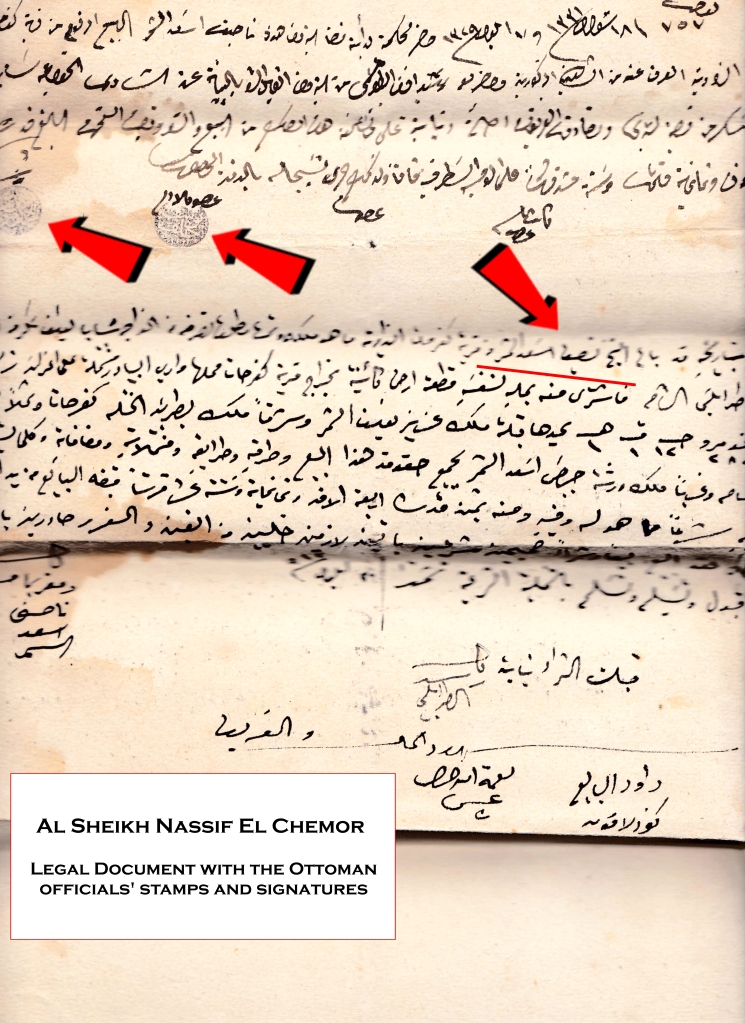
Above: The Royal House of Ghassan has acquired several family documents which prove, beyond any reasonable doubt, that the Royal Family not only ruled from 220 CE until 1747 CE but also kept using the titles even after the deposition until the present days.
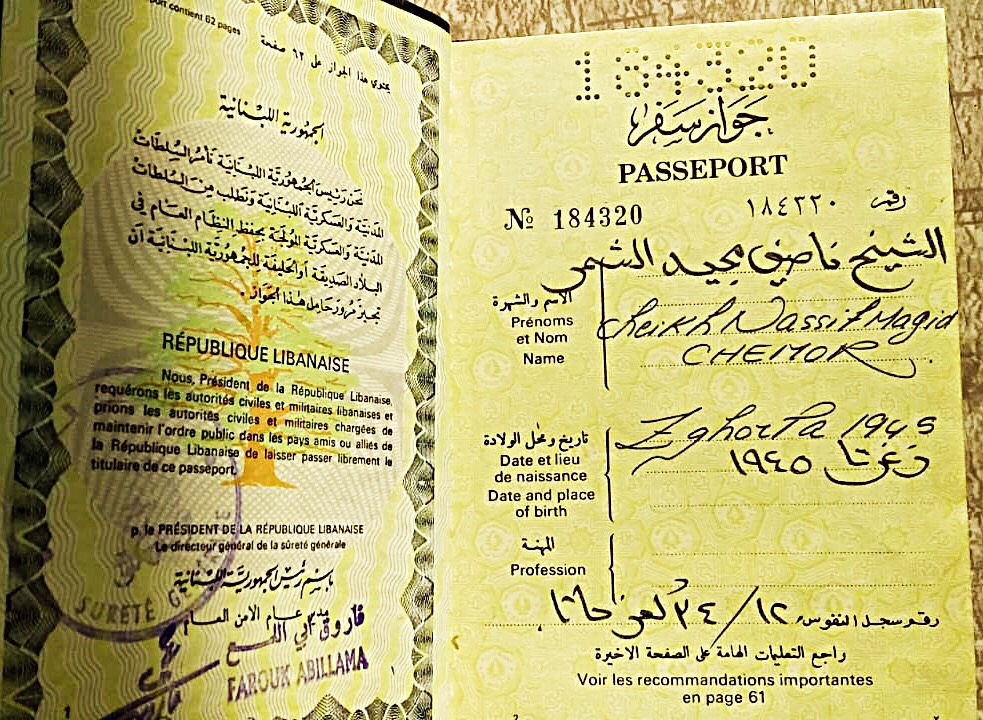
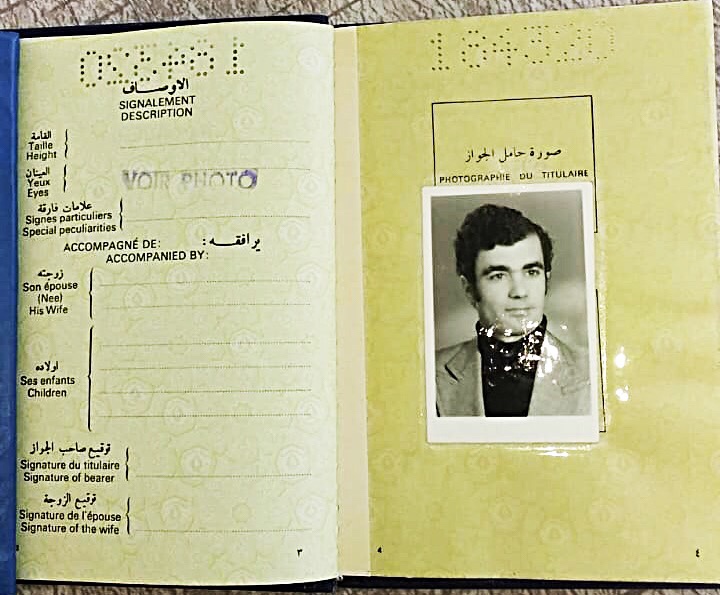
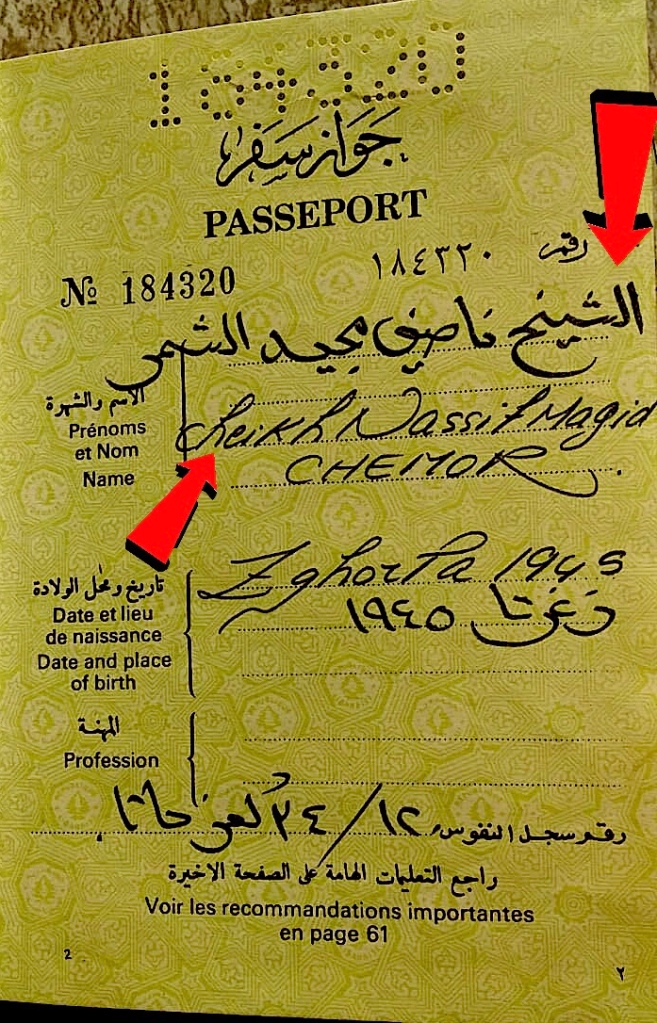
Above: A recent official passport from the Lebanese Republic from the late Sheikh Nassif El Chemor (1945-2017) displaying his title







The Ghassanid Royal Family (Sheikhs El Chemor) have been cited in several books, encyclopedias and newspapers in the last decades
For a better understanding of the subject we strongly recommend reading the following article:
The Sheikhs El Chemor: a legal study of titles
And watch these videos:
8 thoughts on ““Amir” versus “Sheikh”: understanding the Arab titles”